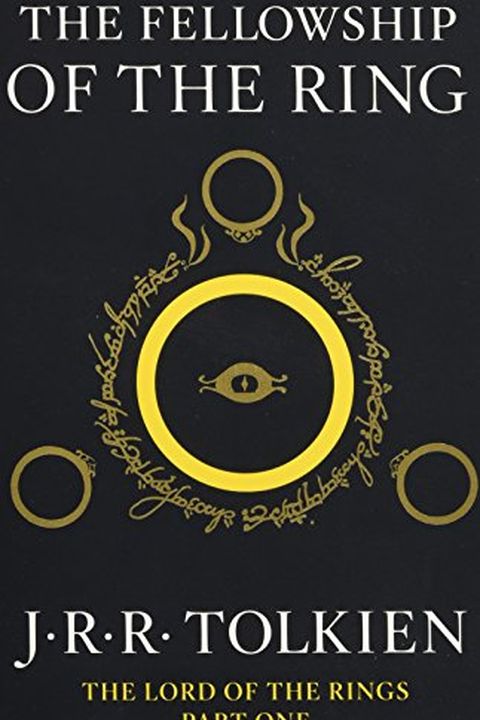Myers Briggs Characters
ESFP Characters
Entertainer
Spontaneous, energetic and enthusiastic people – life is never boring around them.

Jack
from Brokeback Mountain
Jack from Brokeback Mountain could easily be typed as an ESFP. While Ennis is stoic and keeps his feelings bottled up inside, Jack is loud, outgoing, and the life of the party. He fits perfectly into the entertainer category because he himself is an entertainer. He performs in front of thousands during his rodeo shows and he's always wearing flashy clothes that show off his bright personality. His fun persona is good for Ennis and he helps him loosen up so he can live a little.

Bellatrix Lestrange
Whatever she is doing, Bellatrix likes to be in the center of the action. This especially involves actual fights; Bellatrix revels in dueling her enemies, especially when she fights two or three at once. She has extremely quick reflexes, and she will continue fighting with any other weapon she has after losing her wand. The only feelings that matter to Bellatrix are her own, Voldemort’s, and possibly those expressed by members of her family. She could care less about anyone else, and she will torture people purely for her own enjoyment.

Ginny Weasley
Ginny is very good at reading others. An older Ginny is daring and action oriented. She always loves to be in the middle of fray fighting with the Order and beside her friends. When she isn’t trying to save the Wizarding World she is still constantly immersing herself in physical actives as a quidditch player. Her relationships are based on the here and now, on being in proximity with the person. It is why when she and Harry start dating they are inseparable. It is a classic Se dominant behavior. Introverted Judgement gives Ginny a love of freedom and pride in her individuality. Ginny does not enjoy her brothers telling her how she should act and be. That is for her and her alone to decide. That is her auxiliary Fi showing itself.

Sam Wilson
from Captain America
Sam is quick to adapt to the changing, unpredicable realities of the present moment (the neuroscience behind this is really cool — Extroverted Sensing types’ brains actually fire in a “tennis hop” pattern that lets them react quickly). We also get to see quite a bit of his other extroverted function, an ESFP’s tertiary Extroverted Thinking. He relies on it quite a bit (possibly more than the typical ESFP), effortlessly blending his Sensing and Thinking sides to deal with reality in a straightforward and efficient way. Thinking isn’t what he bases decisions on deep-down, though. That’s Introverted Feeling, which prompts him to stick with what he believes is right regardless of what other people say.

Octavia Blake
from The 100
Octavia is an incredibly action-oriented character. Her instinct is not to reflect or be a diplomat. For Octavia your actions speak louder than words. She doesn’t care what anyone has to say to her, but what they do. Your actions have implications and tell her who you are, she doesn’t need your monologue of justification. She saw what you did, she doesn’t care what the intent was behind it, just the results. She sees and communicates in what is, not what could be. This makes her quite a go-to pragmatist. Octavia makes judgement calls based out of her personal experience and gut feelings. Everything is formed by what has happened to her. This has both good and bad consequences for Octavia. Her sympathies are based on the individuals she meets and deals with. This is most prominent in her relationships with Lincoln and hatred of Jaha. On the one hand this can create deep empathy for those that others leave behind, but can also result in deeply and personally rooted anger and wrath.

Anakin Skywalker
from Star Wars
Anakin shows a knack for piloting from a very young age. Whether he’s at the controls of a podracer, a starfighter, an airspeeder, or a heavily damaged enemy battle cruiser, Anakin can dodge obstacles and dart through firefights, and fire the kill shot to boot. Anakin’s values and desires often clash with the Jedi teachings, and he usually follows his own heart rather than what others tell him to do. He marries Padme, the love of his life, in secret, even though Jedi are forbidden to marry. Anakin is good at leading, organizing, commanding, and delegating. While prepping his podracer for a big race, Anakin supervises all his friends, rather than doing everything himself or ceding authority to Qui-Gon or some other adult. Although Anakin lives in the moment, he does have some long-term dreams. As a slave on Tattooine, Anakin wants nothing more than to fly away on a starship and become a Jedi (which he eventually does), and when he meets Padme, he immediately knows that he wants marry her (an aim that he realizes ten years later).

Ron Weasley
Ron likes to have fun, and lives for the thrills of the moment. He often neglects to study for important exams, as he cannot handle the tedium of prolonged studying. Ron hates when he is insulted, and has a hard time forgiving people who have wronged him or someone close to him. He is so receptive to put-downs that a barrage of insults can completely sink his Quidditch skills. Although Ron isn’t keen on the responsibilities of being a prefect, he certainly enjoys the authority; he can spare Harry from the needling insults of their roommate, Seamus, and confiscate forbidden objects from other students for his own use. Ron can be paranoid at times, especially with regards to Ginny and her romantic relationships. He stops talking to each of his best friends at different times because he has his own absurd (or sometimes plausible) notions that they have wronged him.

Daisy Buchannon
from The Great Gatsby
Daisy from The Great Gatsby is the ultimate socialite and she has dozens of friends all around the world. People adore her company because she has a way of making everyone around her feel important. This is typical of the ESFP personality type who excels with their social skills like no one else can. Daisy falls for the glitz and glam brought on by Jay Gatsby's luxurious lifestyle, and the ESFP personality type otherwise known as the "entertainer" has a habit of being a bit on the materialistic side. This is why she cries when she is surrounded by "such beautiful shirts."

Marianne Dashwood
Sensibility is defined as “the ability to appreciate and respond to complex emotional or aesthetic influences.” In Jane Austen’s novel Sense and Sensibility, Marianne is the Dashwood sister represented by sensibility. She’s impulsive, emotion-ruled, and thrives on taking experiences to the extreme. Marianne starts out the story as an ESFP who relies wholly on her Extroverted Sensing and Introverted Feeling. She doesn’t plan-ahead and she doesn’t let other people or logical concerns drive her decision-making. She lives in the moment and does whatever seems most true to herself. As the story progresses, she does develop more balance in her personality and begins to demonstrate a practical side (tertiary Extroverted Thinking).

Peregrin Took
Because Extroverted Sensing is their lead function, many ESFPs like Pippin enjoy sensory experiences (such as good food and drink). They tend to act first and ask questions later, preferring to experience the world than analyze it from a distance (which often gets Pippin in trouble with Gandalf). With Introverted Feeling as his auxiliary function, Pippin also has a seriousness to his character which is not readily visible. That’s not the part of himself he usually shares with others. We don’t really get to see it until the siege of Minas Tirith prompts some somber reflection and soul-searching. He’s still has an SP’s ability to quickly adapt to what’s going on in the real-world, though, which helps him save Faramir’s life.

Finnick Odair
from The Hunger Games
When we first meet Finnick Odair in Catching Fire, he seems very much the hedonist. Live in the moment and do whatever feels good because we might (quite literally) die tomorrow. And that’s definitely a part of his character as an SP type. There’s a more serious side to him, though, as with many ESFPs in real life. It’s easy to think their Extroverted Sensing is shallow and all about having fun, while in reality they process things deeply. Finnick is the youngest person to ever win the Hunger Games. He’s intelligent and dangerous, but easy to underestimate because he’s also charismatic, flirtatious, and enjoys messing with people. He hides his true feelings down deep but always does his best to live in alignment with what he thinks is right. When he does turn his Judging function outward (that’s the T/F in Myers-Briggs), it’s his tertiary Extroverted Thinking that we see. It’s also worth noting that ESFPs and ESTPs are the types that Naomi Quenk says tend to bounce-back the fastest after stressful experiences. While Finnick is deeply affected by the trauma of the Hunger Games, he’s good at finding ways to ground himself in the present and move on.